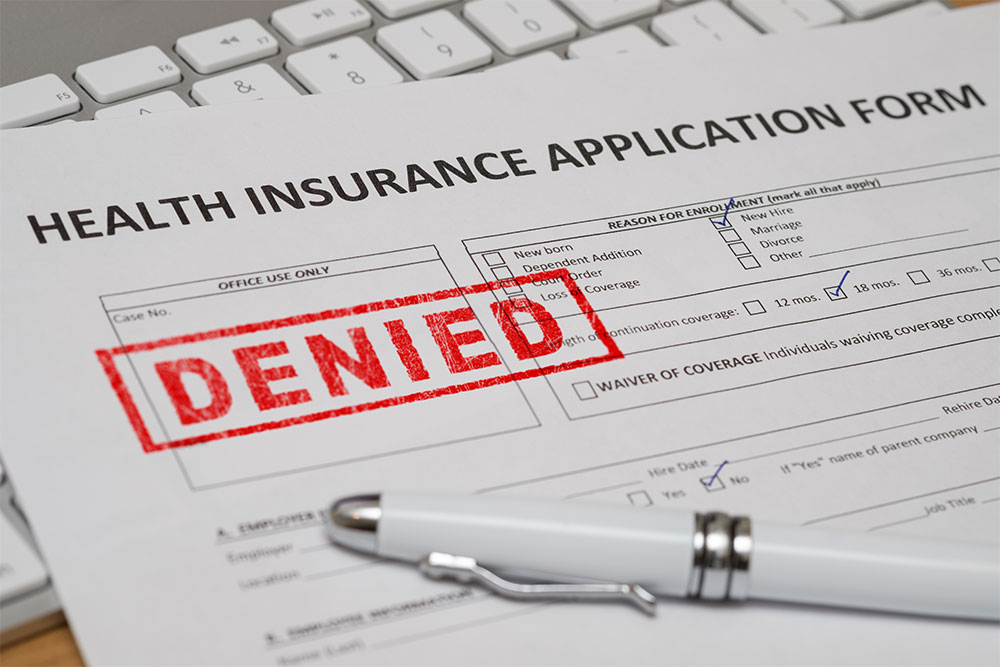
When health insurance gets declined, there is head over heels, and it becomes difficult, and there is a tense, atmospheric situation, especially for the patient and the doctor. There might be few insurances that get appealed easily, but later on, the insurance company people can start acting weird. It takes a toll on the one who has applied for the health insurance claim, even spending an ample amount of money. A Miami medical malpractice lawyer can help you in such cases. In this blog, you will read the reasons for health insurance claim denials.
Weaving your way through the complex maze that is health insurance can be difficult even on the best of days. Health insurance is difficult to understand. There are more options than most people know what to do with. So to make things easier, we turn to health insurance navigators and their private insurance counterparts, health insurance brokers and agents. But what is the difference?
The first difference between health insurance navigators and brokers is representation. Navigators represent public health insurance options while brokers represent private insurance. The one exception to this rule is those brokers who register with the federal government in order to sign people up through federally backed insurance exchanges.
What a Health Insurance Navigator Does

A health insurance navigator’s primary function is to assist and advise consumers and employers seeking health insurance through a federal exchange. Also known as the Federal Marketplace, the state-run exchanges that make up the marketplace arena offer a variety of health insurance options based on income.
Navigators are necessary because the system is difficult to understand. There are eligibility requirements to consider, as well as different types of plans based on affordability. As with all things government related, there is also a ton of digital paperwork that goes along with federally subsidized health insurance. It is the navigator’s job to help consumers and businesses make sense of it all.
Becoming a Navigator
A health insurance navigator can be an individual, non-profit, or business entity. The law requires annual training that takes about 30 hours to complete. Candidates must also pass an exam to prove that they understand how to work the federal system. All navigators must adhere to a standard of contact and follow all the applicable rules.
What a Health Insurance Broker Does

While some insurance brokers deal directly with consumers, most do not. Health insurance brokers represent insurance carriers hoping to sell their products to employers. So most of the time, health insurance brokers deal directly with company owners and HR departments.
Brokers can work independently, as representatives of just one or two insurance carriers, or through a general agency. Dallas-based BenefitMall is an example of a general agency that represents more than a hundred carriers. Brokers work through BenefitMall and their technology platform to access insurance products on behalf of their clients.
In addition to finding health insurance plans for employers, brokers also facilitate open enrollment and plan management. The extent to which they work with employers to administer health insurance differs on a case-by-case basis.
Becoming a Broker
Becoming a health insurance broker starts with training. Though training requirements vary by state, every state requires future brokers to take a state licensing exam. A typical broker will have at least a bachelor’s degree in a related field. However, it is possible to become a broker without a degree by way of on-the-job training and eventual licensing.
One Guides, the Other Sells

Perhaps the easiest way to distinguish between a health insurance navigator and a broker or agent is to say that one guides while the other sells. It is not the navigator’s role to sell specific health insurance options. In fact, navigators don’t represent insurance carriers. Brokers and agents do. Their primary goal is to sell insurance plans to employers. They do so by representing carriers and offering tertiary services in support of their clients’ chosen plans.
If you buy health insurance through a federal exchange, you may have experienced working with a navigator. If your health insurance is obtained through your employer, you have likely never dealt with either a navigator or a broker.
The reasons for health insurance claim denials are as follows:
1. Filed Your claim too late
A filing for a health insurance claim is primarily valid for about 90 days or less than 90 days from when services. So the person has to make sure to file the claim before the due date, or else the insurance company will accept the lawsuit once done with providing services. Always make it to the point of the claim due date so that it’s not too late, or the suit can get rejected.
2. The insurance company lost the claim, and it expired
It becomes frustrating when the insurance company can have the possibility of losing your claim, and even if the mistake is from their side, they will put the blame on you. Please make sure the claim gets into their system before the expiry date, or else you will have to face the backlash without any mistake of yours. As a patient who has suffered, you should have proof like medical records from the doctor to be on the safer side.
3. Lack of progress

If for suppose, looking at the patient’s condition, long-term care is required with a bit of hope for better things, then there could be a possibility of the insurance company denying a medical claim.
4. Incorrect coding
Entering the code faultily can be a big step towards denying a medical claim from the insurance company. So while entering the code, make sure to enter it correctly or attempt to re enter the code, which can resolve the problem.
5. Coverage exclusion or exhaustion
Many insurance companies have the limit of cost-covering, and there might be many services they might not include. So when you file for an insurance claim from the company, make sure they provide the service, or the claim will get rejected.
Conclusion
For accepting medical claim insurance, one should understand the common reasons, so while filing for a medical claim, be prepared so you won’t waste your time and finances.










